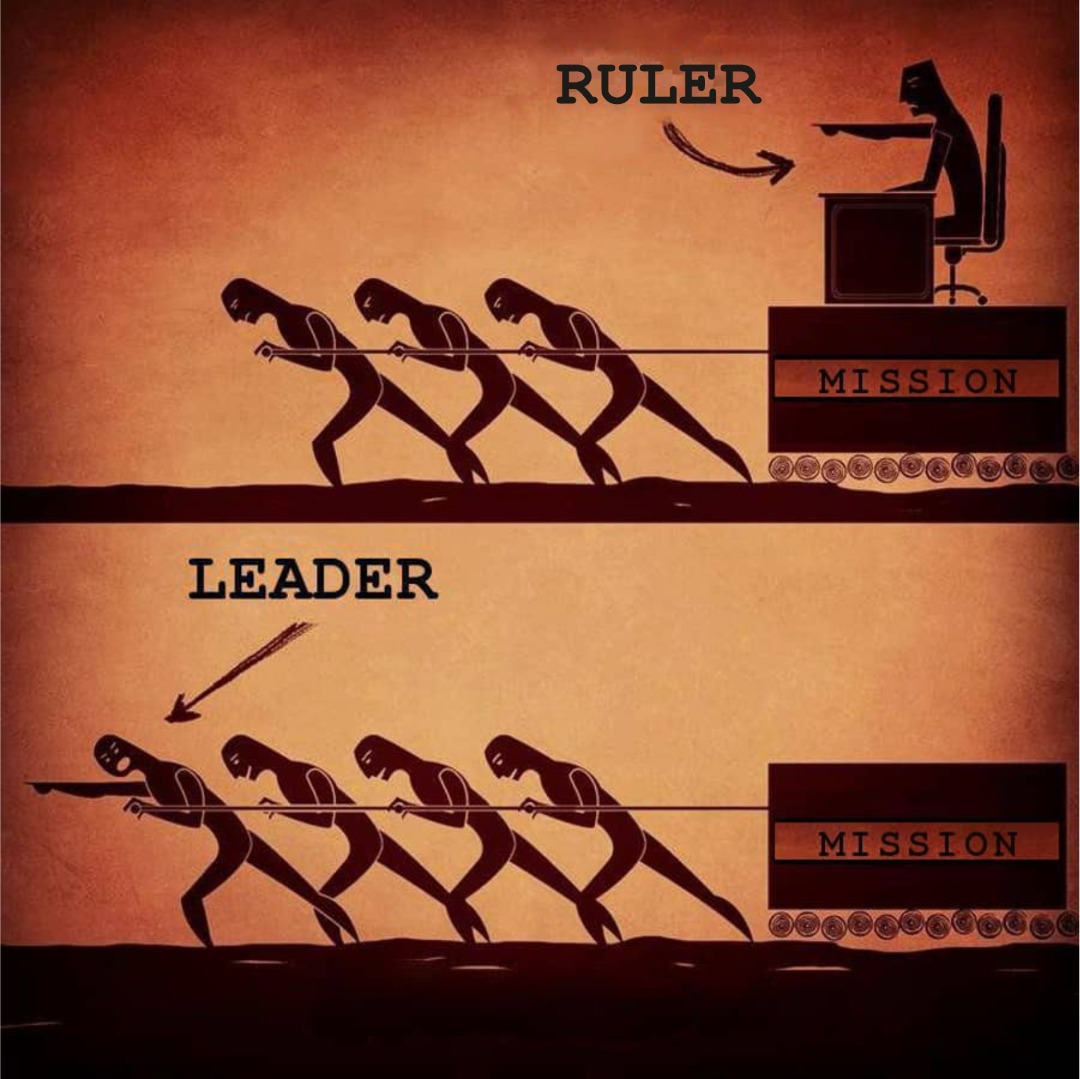Often, people misconstrue the word Rulership for Leadership and use one in place of the other; whereas, these two words cannot interchangeably mean the same thing.
Rulership is when someone exercises his power and authority over other people; he controls, dominates, coerces, and imposes his will with little or no consideration of what the people would have considered their preferred options.
A Ruler is someone who dictates the rules which you have no choice but to follow, peradventure you act otherwise, the consequences for disobedience include death, imprisonment, and physical harm. They share the assumption that being the head gives one the absolute right and authority over others.
On the other hand, LEADERSHIP encompasses all definitions that influence directions, guidance, motivation, empowerment, inspiration, and encouragement to others to be the best they can be, putting their skills, potentials, and abilities into proper use.
Jesus established his leadership model on the foundation of service; therefore, it needs to be seen from the lens of rendering service to the people rather than placing people in servitude.
Effective leading has been the principal instrument for the successful growth, performance, and development of the high flyers today.
It is the responsibility of leaders to empower their followers, to help them understand how leveraging on others can help them break new barriers, exceed limitations, and have a significant impact.
The concept of rulership would not only cripple creativity but would also place a colossal hurdle against innovation as opposed to that of leadership.
LEADER and RULERS are the prime navigators, but people will always follow someone modest, who shows the way, goes the way, leads the way, and is open to suggestions, rather than one who is arrogant and full of commands.
Now that you know the difference between rulership and leadership, it is time to redefine what you have been to your followers- a leader or a ruler.
Nevertheless, CHOOSE TO LEAD!




